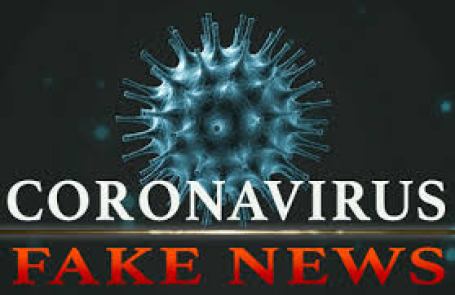The challenge of checkmating fake news predates the outbreak of the COVID-19 pandemic, but the problem has become more worrisome considering that the health challenge of coronavirus is a matter of life and death.

The worry of ensuring that the public gets the right information in the continued battle against the spread of the virus informed a webinar where I spoke as a panelist on Friday, June 12, 2020.
The other panelists were the Director of the International Press Centre (IPC) Lagos, Lanre Arogundade, and Mrs. Funke Treasure Durodola, former General Manager of Radio One of the Federal Radio Corporation of Nigeria, while the Executive Director of EnviroNews Development Network, Mr. Michael Simire, was the moderator.
Organised by the Lagos Civil Society Coalition Against COVID-19, the forum was themed: “COVID-19: Checkmating Fake News and False Information Online (Focus on Lagos State).”
Lagos being the epicentre of the pandemic in the country has reasons to be more worried about the indiscriminate publications and sharing of fake news and false information on various platforms with the increasing number of infected persons compared with other states.
While governments at various levels are doing their best to combat the pandemic, the extent of “infodemic” is alarming. Without regard to the danger posed by fake news, which is the deliberate dissemination of false information, many are engaging in the unfortunate act.
Some people just concoct false information about supposed cure, who has died, new research findings, what people should believe and many more which they send to unsuspecting members of the public, some of who take the information as true. There have been reports of some who have even used prescribed false cure combination drugs and died in the process.
The media indeed have a major role to play in checkmating the fake and false information and have been doing a lot in this regard. Journalists and other information disseminators still have to do more if the goal of ensuring the flattening of the infection curve is to be achieved.
Being a new disease, which even medical personnel are trying to understand, journalists have to take time to learn more about it and understand the various issues involved. Without properly understanding what the disease really is, they may not be able to provide the necessary information which the public needs to know and counter false information.
It will not be enough to say what people are getting on various platforms are false; journalists will need to explain in details why they are and the dangers involved. The gullible public needs more convincing facts, figures and explanation on the matter.
Even while getting information from those who are supposed to be experts, every claim or information has to be verified and fact-checked. There are standard procedures for medical practices and research which must be complied with before any claim should be reported.
Fake news and information thrive in the absence of enough information for journalists to work with. It will, therefore, be necessary for government agencies and officials involved in managing the pandemic to provide correct information promptly.
Medical personnel, scientists, other experts, political and religious groups should speak up more to counter the false narrative about the disease. There is so much doubt about how real is the disease that no effort should be spared in providing needed information beyond the major cities.
There may also be the need for media literacy education for people to know how to identify fake news and false information and avoid spreading them as the truth to others.
By Lekan Otufodunrin (Executive Director, Media Career Service)
